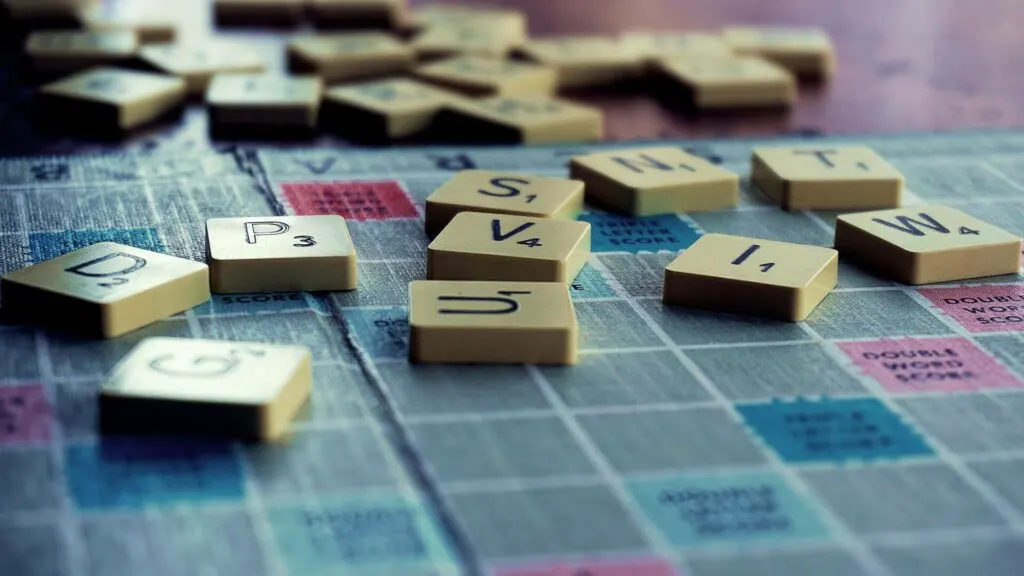Scrabble isn’t just a game of words. It’s a mental workout that can keep your brain sharp and agile. Whether you’re a seasoned player or a newbie, scrabble offers a fun way to exercise your mind while improving your vocabulary.
With every tile you place, you’re not just scoring points. You’re also engaging in a cognitive challenge that stimulates your brain. Scrabble requires strategic thinking, memory recall, and problem-solving skills, all of which contribute to mental fitness.
Moreover, it’s never too late to start playing. Regardless of your age, scrabble can offer a boost to your brain health. So, dust off that old game board and let’s dive into how scrabble can be your brain’s best friend.

The Importance of Keeping Your Brain Sharp
Regular brain exercise ensures overall mental health. Among the many ways to achieve this, playing games like Scrabble can help keep your brain sharp. At every stage in life, it’s crucial to engage in activities that aid in maintaining mental agility and broadening neuronal connections.
Scrabble isn’t just a game, it’s a mental workout. It means you get to flex your cognitive muscles without hitting a gym! Think about the last time you played Scrabble. You used logic and strategic thinking to achieve the highest possible word score, didn’t you? Every move demands memory recall, problem-solving, and analytical skills. Now, imagine the benefits when you’re using those brain skills regularly.
- Improves cognitive function
- Enhances memory
- Encourages strategic thinking
How Scrabble Can Help
Your mind is a powerful tool, and playing Scrabble is an excellent way to keep it sharp. Understanding how specifically it aids your brain will not only affirm your gaming habit but also put you at the edge of your next games. Let’s delve into the details.
Building Vocabulary
You may not realize it, but every time you play Scrabble, you’re expanding your vocabulary. The game requires you to form words from a random selection of letters which quietly pushes you to extract those rarely used words from the corners of your memory. It’s almost similar to learning a new language, except you tap into the vast reserves of English words you seldom encounter in everyday life.
From common everyday words to terms that are more academic or industry-specific, Scrabble affirms your current language knowledge and propels you to learn new terms. You’ll be amazed at the drastic increase in your lexicon range after a few games.
Improving Memory
Ever stumbled upon a word in Scrabble that you knew but just couldn’t remember? Scrabble isn’t simply about testing your current vocabulary; it’s also about memory recall. Faced with an array of random tiles, your mind has to dig through all the data it has absorbed over years to piece letters into recognizable words.
It’s more than just a game of letters; it’s a potent memory exercise, pushing your brain to recall and retrieve. As you improve your Scrabble skills, you’re also honing a valuable cognitive ability. The consistency of this mental exercise is what can help keep your brain sharp, alert, and agile.
Scrabble provides an engaging platform to work out your memory muscles without the dullness attached to regular memory exercises. Through the enjoyable process of playing, you’re refining your memory skills and cognitive speed, which ripple positively into your daily activities. If you’re looking to boost these benefits even further, you might consider supplements like Cogni Ultra or Youthful Brain.

Strategies for Sharpening Your Brain with Scrabble
Previously, we discussed how Scrabble can keep your brain sharp by requiring strategic thinking, memory recall, and problem-solving skills. Now let’s delve into some specific strategies for maximizing the cognitive benefits of this challenging game.
Practice Regularly
Just like any skill, the more you practice Scrabble, the better you’ll become and the more your brain will benefit. As you ponder over your tiles, you’ll be developing your problem-solving skills since every move is a problem that needs a solution. Considering the vast selection of acceptable scrabble words – over 120,000 words according to the Official Scrabble Player’s Dictionary – it becomes clear that regular practice is essential to keep those memory recall processes at the ready.
Challenge Yourself with Difficult Words
Don’t just stick to using simple and easy words. Expand your vocabulary by deliberately using difficult words when you play. Continually seeking out and utilizing unfamiliar words forces your brain to adapt and learn, further enhancing your cognitive function. With an improved vocabulary and enhanced memory recall, you’ll find areas outside of Scrabble where these benefits apply – for instance, during conversations or while reading.
Play against Skilled Opponents
Playing against opponents who are better than you offers an immense opportunity for growth. Skilled opponents help push you out of your comfort zone, prompting you to devise new strategies to win. This constant push for strategic evolution encourages improved brain function. So, whether it’s a seasoned competitor or an AI opponent set to the highest difficulty, embrace the challenge.
Other Benefits of Playing Scrabble
Digging deeper into the labyrinth of benefits, Scrabble takes you on an enriching journey of cognitive development and creative enhancement. Don’t consider it as just a word game, but a brain training tool that keeps adding value to your mental prowess.
Enhancing Cognitive Skills
Scrabble illuminates the path of enhancing various cognitive skills. It’s a game that puts your brain through a relentless exercise routine. It works out different cognitive muscles, making your brain stronger and more agile. When playing Scrabble, you’re required to think, strategize, and remember. Each move is a test of your mind’s agility and sharpness.
You become better at pattern recognition as you seek out the right word in your collection of random letters. It nudges your memory recall, as you dive into the depths of your lexicon to fetch high-scoring words. Moreover, Scrabble’s influence isn’t confined to the game board, it permeates other areas of life as well. It improves your arithmetic skills as you constantly tally scores, and boosts your spatial awareness as you negotiate the confines of the board.
Boosting Creativity
On the other hand, Scrabble’s ability to boost creativity is often overlooked. The game presents a unique challenge with every draw from the bag – you’re handed a set of letters and it’s your job to mold them into words. It’s your mind’s playground, where you manipulate letters and transform them into words, creating narratives out of mere alphabets.
However, the creativity doesn’t stop at word formation; it extends to strategic placements as well. Nailing a triple word score or strategically blocking your opponent’s path demands a fair share of creativity. The more creative you get, the better chances you have at winning.
Conclusion
Scrabble’s more than just a game—it’s your secret weapon for maintaining mental fitness. It’s a fun and engaging way to exercise key cognitive skills like strategic thinking, memory recall, and problem-solving. As you dive into the game, you’re improving pattern recognition, arithmetic skills, and spatial awareness. It’s not only about the words you know, but also about how creatively and strategically you use them. So, next time you’re up for a game, remember—you’re not just playing, you’re pushing your brain to its limits and keeping it sharp. Scrabble offers more than entertainment—it’s a brain booster in disguise.

Jessi is the creative mind behind The Coffee Mom, a popular blog that combines parenting advice, travel tips, and a love for all things Disney. As a trusted Disney influencer and passionate storyteller, Jessi’s authentic insights and relatable content resonate with readers worldwide.
